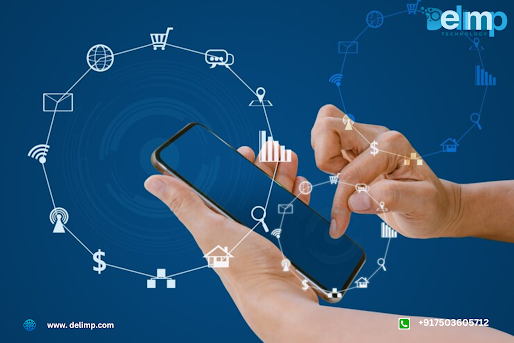Mobile Apps and The All Business Industry: Improving Customer Relationship
In the era of digital transformation, mobile apps have become indispensable tools for businesses across all industries. The seamless integration of mobile technology has not only streamlined internal processes but has also revolutionized the way companies interact with their customers. This shift has been particularly impactful in the "All Business" industry, where the versatile nature of mobile apps plays a crucial role in enhancing customer relationships.
Accessibility and Convenience
Mobile apps provide unparalleled accessibility and convenience for customers in the "All Business" industry. Whether it's banking, retail, or service-oriented businesses, having a mobile app allows customers to access products and services at their fingertips. It also led to large-scale mobile app development on a global level. This convenience significantly improves the overall customer experience and fosters a sense of loyalty.
In the banking sector, for example, mobile banking apps have become essential for customers to check balances, transfer funds, and manage accounts on the go. Similarly, retail apps enable customers to browse products, make purchases, and track orders seamlessly. The convenience of having all business-related activities accessible through a mobile app strengthens the customer-business relationship by aligning with the fast-paced lifestyle of modern consumers.
Personalized User Experience
Mobile apps enable businesses to offer a personalized and tailored user experience. Through data analytics and user behavior tracking, businesses can understand individual preferences and provide relevant content, recommendations, and promotions. This level of personalization enhances customer satisfaction and engagement.
In the "All Business" industry, personalized experiences are particularly impactful. For instance, an e-commerce app can use customer purchase history to recommend products, while a travel app can provide personalized travel itineraries based on previous bookings. This customization not only makes customers feel valued but also increases the likelihood of repeat business.
Seamless Communication and Feedback Loop
Mobile apps facilitate seamless communication between businesses and customers. In-app messaging, push notifications, and feedback mechanisms in mobile app design create a direct and instant channel for interaction. This real-time communication enhances customer engagement, allowing businesses to promptly address concerns, share updates, and gather feedback.
For example, a restaurant app can notify customers about promotions or new menu items, while a healthcare app can send reminders for appointments or provide health tips. The feedback loop is equally crucial, allowing businesses to gather insights, address issues promptly, and continuously improve their offerings based on customer input.
Loyalty Programs and Rewards
Mobile apps serve as powerful platforms for implementing and managing customer loyalty programs. Businesses in the "All Business" industry can use apps to reward customers for their loyalty, encouraging repeat business and fostering a sense of exclusivity. Loyalty programs, coupled with personalized offers, create a win-win situation for both businesses and customers.
In the hospitality sector, for instance, hotel apps can offer exclusive discounts, complimentary services, or room upgrades to loyal customers. Similarly, retail apps can provide points-based reward systems or special discounts for frequent shoppers. These loyalty initiatives not only retain existing customers but also attract new ones through positive word-of-mouth.
Enhanced Customer Support
Mobile apps play a crucial role in elevating customer support services. In-app chat support, knowledge bases, and FAQs empower customers to find solutions to their queries independently. Additionally, businesses can integrate chatbots powered by artificial intelligence to provide instant and efficient customer support.
For instance, a banking app can use a chatbot to assist customers with account-related queries, while a travel app can provide real-time support for booking changes. The availability of instant support within the app ensures that customers feel supported and valued, contributing to a positive overall experience.
Data Security and Trust Building
In the "All Business" industry, where trust is paramount, mobile apps play a crucial role in ensuring data security. Implementing robust security measures within apps, such as encryption and secure authentication processes, builds trust among customers. When customers feel confident in the security of their transactions and personal information, it strengthens the overall relationship with the business.
Conclusion
Mobile apps have become integral in shaping and improving customer relationships in the "All Business" industry. From providing accessibility and convenience to offering personalized experiences and enhancing communication, the impact of mobile apps is far-reaching. Businesses that embrace this technology not only stay competitive but also create a foundation for long-term customer loyalty and satisfaction.
As the digital landscape continues to evolve, mobile apps will likely play an even more significant role in defining how businesses interact with their customers. The key lies in understanding the unique needs of the industry, adopting innovative technologies, and continually evolving to meet the dynamic expectations of today's consumers. In the "All Business" sector, the future of customer relationships is undoubtedly intertwined with the seamless and personalized experiences facilitated by mobile apps.




Comments
Post a Comment